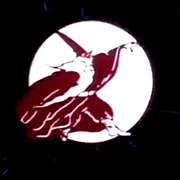|
FastestGunAlive posted:...and got rid of bridging companies. I'm kind of amused at the idea of marines landing on some beach, fighting a few miles inland, getting stuck, and yelling, "gently caress! A river! Who could have anticipated it?"
|
|
|
|

|
| # ? Apr 25, 2024 00:12 |
Rocko Bonaparte posted:I'm kind of amused at the idea of marines landing on some beach, fighting a few miles inland, getting stuck, and yelling, "gently caress! A river! Who could have anticipated it?"
|
|
|
|
|
Speaking of Technowar, has anybody read The Irony of Vietnam? I've had it sitting on my table forever, written by the guy in charge of the department that wrote the Pentagon Papers, all about how American leaders knew basically exactly what they were doing and the political machinations that caused them to continue the largely counterproductive war they did not expect to win.
|
|
|
|
PittTheElder posted:Speaking of Technowar, has anybody read The Irony of Vietnam? I've had it sitting on my table forever, written by the guy in charge of the department that wrote the Pentagon Papers, all about how American leaders knew basically exactly what they were doing and the political machinations that caused them to continue the largely counterproductive war they did not expect to win. Any resemblance to our policy in AfPak for the last dozen years or so is entirely coincidental, I'm sure.
|
|
|
zoux posted:What advantages does a five - well six now I guess - branch armed service have over a singularly integrated one? Are there now or have there been major military powers where navy/army (later air) have been under unified command? I wouldn't call us a major military power, but the Canadian Armed Forces have been unified since 1968. By all accounts it was terrible for morale because the navy and air force were forced to accept army-style rank insignia and green uniforms. The army/RCN/RCAF were renamed Mobile Command/Maritime Command/Air Command. Most all of the changes have been gradually reverted, with the names changing back around 2011, but the services are still unified. Afaik one of the permanent changes of unification is that support trades can be posted to any of the other elements since it's a unified force, i.e. a navy medic might be posted to an air force wing, or a navy base might have army MPs.
|
|
|
|
|
zoux posted:What advantages does a five - well six now I guess - branch armed service have over a singularly integrated one? Are there now or have there been major military powers where navy/army (later air) have been under unified command? Arguments against further integration of the forces are: Joint strategies can be unfocused, middle path answers. https://warontherocks.com/2015/07/why-jointness-makes-for-bad-strategy-and-other-thoughts/ Interoperability efficiency comes at the cost of simplicity. In the article below, they cite that as a potential cause for cost overruns, but I could see it leading to operational complexity and therefore operational cost or risk. https://systemarchitect.mit.edu/docs/dwyer14b.pdf I can't find the articles for it right now, but I've seen the argument made that our focus on joint training, as disparate and ununified as the forces are already, leads the setvices to lose focus on their primary areas resulting in a lack of depth in tactical understanding among mid-grade officer corps. I think this would be an argument against increased integration as well. In essence though, the operating force of the US is already a single force. A joint commander oversees air, maritime, and land commander, each in charge of units from across the services in each though obviously the quantity of marines and army under the control of the land component commander, while mostly air force but some navy and army forces report to the air component commander and so on. The individual forces then mostly serve as cultural boundaries that drive particular departments, communities, and types to focus on procurement and doctrine within their areas of expertise. The individual forces man, train, and equip forces that are provided to an integrated US joint force structure.
|
|
|
|
Rocko Bonaparte posted:I'm kind of amused at the idea of marines landing on some beach, fighting a few miles inland, getting stuck, and yelling, "gently caress! A river! Who could have anticipated it?" Rivers can require different equipment due to steep banks, etc.
|
|
|
|
piL posted:The individual forces then mostly serve as cultural boundaries that drive particular departments, communities, and types to focus on procurement and doctrine within their areas of expertise. This seems to be the major issue I see with divided forces, at least from my detached layman's perspective, but I don't see how you address that. If you split a group of people into two for any reason, they'll become rivals over time, so probably even if you integrated all military procurement into a single vertical silo you'd have factions develop within that silo based on their own preferences and biases about systems development. Anyway, thanks for the post, I don't disagree that in military operations the US branches act as a de facto single organization, so with that in mind I was curious as to what benefits division still offered beyond institutional inertia and branch pride.
|
|
|
|
There's never a perfect organizational structure. Any structure will have it's benefits and problems - replication can be wasteful, but it can also lead to more innovation and experimentation.
|
|
|
|
|
Nothingtoseehere posted:There's never a perfect organizational structure. Any structure will have it's benefits and problems - replication can be wasteful, but it can also lead to more innovation and experimentation. It also means you have that many more chances to get it right. One of the services may end up with a gem that can be shared (Corsair, M-16). You also have a better chance of people taking ownership of the project. Like, would you expect better results from: -The Central Procurement Directorate needs their quarterly paperwork in quadruplicate where you swear up and down that you're this many % from meeting each of your agreed upon development milestones -Some ignorant dumbass general who didn't want the plane in the first place insisting on visiting the factory and laying eyes on the airframe you have under construction, and if it's not to his liking he is going to demand answers Both definitely have their upsides and downsides and obviously real life is a mix, but a bunch of faceless bureaucrats none of which is directly responsible seems like how you end up in Canada's boat.
|
|
|
|
e: my bad, this was for the cold war thread
Nebakenezzer fucked around with this message at 21:52 on May 12, 2021 |
|
|
|
Any books or info on the Dutch army during the Cold War? Yes, it is for gaming.
|
|
|
|
Cessna posted:Any books or info on the Dutch army during the Cold War? I have some, what are you looking for exactly, and do you read Dutch?
|
|
|
|
General info, especially on how the unions worked and their history. I'm also interested in how the unit organizations were set up to facilitate group cohesion. It is my understanding that the draft was handled by unit, rather than by individual - i.e., a whole company would be conscripted, go through training together, etc, as opposed to going through the system as individuals. I could be completely wrong here, but that's what I read in a general source - more specific info would be very helpful. Alas, I don't read Dutch, so I may be out of luck.
|
|
|
|
Cessna posted:General info, especially on how the unions worked and their history. The draft in denmark worked like that, where whole units where drafted and trained together. I was drafted into a medical company, we were about 150ish people in 4 platoons. 1st to 3rd month was basic training. After that we were reorganised into cmd platoon, 1st and 2nd dressing station platoon, and an ambulance platoon. People where sent of to individual training, which would be medical helper, (2 weeks), medical assistant (4 weeks) drivers licence for truck or car (3 weeks). At the start of the 5th month unit training began, and you began exercises in your subunit, followed by unit training, culminating in brigade exercises. At the end of your conscription you would get a soldiers book detailing your training, and mobilisation unit in case of mobilisation. But as an old master sergeant told me, the point of the training wasn't so much training the conscripts as it was training the officers and ncos.
|
|
|
|
vuk83 posted:The draft in denmark worked like that, where whole units where drafted and trained together. The real training was the friends you made along the way
|
|
|
|
Can someone educate me about the Indian Wars, specifically the Comanches? I'm reading Empire Of The Summer Moon, a Pulitzer Prize winning history of the Comanches. It seems highly regarded, but wow it's very dramatic. I'm barely a hundred pages in, and I see passages like this: quote:What explains such a radical difference in the moral systems of the Comanches and the whites they confronted? Part of it has to do with the relative progress of civilizations in the Americas compared to the rest of the world. The discovery of agriculture, which took place in Asia and the Middle East, roughly simultaneously, around 6500 BC, allowed the transition from nomadic, hunter-gatherer societies to the higher civilizations that followed. But in the Americas, farming was not discovered until 2500 BC...The Americas, fully isolated and without the horse or the ox, could not close the time gap. They were three to four millenia behind the Europeans and Asians, and the arrival of Columbus in 1492 guaranteed they would never catch up...The nonagrarian plains Indians, of course, were even further behind. Every word of that paragraph is pure bullshit. The only way the Aztecs and Incas were four millennia behind the Spaniards was in their immune system. How did this book win the Pulitzer Prize in 2010? I'm now just hate-reading this book to see how much worse it gets. .................................................................................................................................................... That said, it seems like the Comanches were the absolute worst of the worst of the indigenous nations. This is based off Wikipedia and some You Tube videos, so please correct me: They were the tribe that subjugated all the other tribes in an area a third the size of the modern US. They were so awful, other tribes allied themselves with US cavalry to help hunt them down. Though nearly all the Plains Tribes practiced torture, the Comanches made a habit of torturing (to death) every male prisoner they took. They collected scalps before men were died, collected body parts, burned people alive, and on and on. Bearing in mind three important facts: 1) The United States undeniably committed genocide against not one, but multiple different ethnicities in in the 19th century. 2) There was no one "Indian Nation." Indigenous tribes/nations/whatever had distinct languages, religions, cultures, and lifestyles. 3) Neither the "bloodthirsty primitives" nor "noble savage" stereotypes of Indians are correct. All that said, it seems like the wars against the Comanches were...justified? Not the brutal treatment they endured once they were neutralized, and certainly this doesn't apply to the wars against other nations. But the Comanches launched brutal raids hundreds of miles outside their territories. They intentionally targeted civilians, taking slaves and destroying peaceful homesteads. Unlike other groups, which fought guerilla battles as a defensive strategy, the Comanches had a culture built around raiding and terrorizing, going back even to pre-Colombian times. Is this even remotely accurate? Were the Comanches the Mongols of North America? Is there a better book on the topic than the crap I'm reading now?
|
|
|
|
Are there any good references in English discussing the peculiarities of diet, customs, linguistics, and so forth in the various navies during the Age of Sail besides the Royal Navy? There's a great deal on this kind of thing available about the Royal Navy, perhaps because of the popularity of historical novels set in this period (e.g. the Aubrey and Maturin novels, for which there are any number of guides willing to explain every reference). I'm just wondering what, e.g., the French equivalent of lobscouse was, what the Spanish called their loblolly boys, whether the Dutch have as many nautical terms which have wandered into general usage, and so on.
|
|
|
|
Bagheera posted:Every word of that paragraph is pure bullshit. The only way the Aztecs and Incas were four millennia behind the Spaniards was in their immune system. How did this book win the Pulitzer Prize in 2010? I'm now just hate-reading this book to see how much worse it gets. I mean, the spanish did have guns, steel, horses, and ships capable of trans-oceanic travel. Rolling in during a civilization-shattering plague was obviously a major factor in their conquests, as were a number of other factors (including sheer luck), but I don't think it's exactly controversial to suggest that the Spanish had some major technological and industrial advantages over the people they conquered.
|
|
|
|
Bagheera posted:Is this even remotely accurate? Were the Comanches the Mongols of North America? Is there a better book on the topic than the crap I'm reading now? The only book I've read on the subject is Comanche Empire, I wrote a review earlier in the thread about it. It is lightyears ahead of what you just posted, but still I think considered pretty weak by indigenous scholars. Thinking of the Comanche as the "Mongols of North America" is...not a viable analogy at all, neither for the economy of the Comanche nor their foreign relations nor their tech. I'm a little drunk so I'm not ready to comment on the rest but the relationship between the Comanche, the Spanish Empire, and the US is not reducible to really any particular old world scenario.
|
|
|
|
Bagheera posted:Can someone educate me about the Indian Wars, specifically the Comanches? I read that and remember reading the author describing the homelands of the Comanche going back into the distant past and in the next chapter describing those same lands as being untouched by human hands or unseen by human eyes. I don't get the sense that the author is some slavering racist, but I think rather that this highlights how deeply entrenched a lot of colonial assumptions about what North and South America looked like before and after contact are.
|
|
|
|
Yeah, the book I read was The Comanche Empire by Pekka Hämäläinen, which seemed pretty good to me. I did get the sense that while the treatment that most native groups got was unfortunate and a tragedy, with the Comanche specifically of course the way of life they worked out in the 18th century couldn't possibly peacefully coexist with sedentary agricultural societies like what the US was founded upon. Of course, the Comanche spent most of their history raiding southwards into Mexico, even after Mexico tried to get Texas to become a buffer, so it's not like what the US did to them was direct retaliation. In some ways it's fairly obvious that the one of the biggest empires of postcolumbian native societies would be doing a lot of wars, since that's how you build an empire, but developing into steppe nomads and building a whole economy off of raiding and an administrative system for raids where it's basically impossible to create a meaningful peace treaty is a whole lot. I think a lot of people get wrapped up in contrarianism to the classic cowboys vs. indian stories and mourning the loss of various native peoples, but it definitely wasn't a wholly one-sided affair, even if the fictional stories get really exaggerated. Not even really a two-sided one, since there was a lot of politicking between native groups and european groups and natives fighting natives just like how europeans fought europeans. Technically a lot of european descendants got into the same sort of deal where independent citizens would ignore governmental treaties and attack on their own, so even when only the US was involved dealing with natives, neither side was truly negotiating in a unified way. Not that it's wrong to bemoan the loss of natives or anything, just that when you dig into the specifics of what happened, it's real complicated with a lot of complex interplay and people with different intentions. Fearless posted:I read that and remember reading the author describing the homelands of the Comanche going back into the distant past and in the next chapter describing those same lands as being untouched by human hands or unseen by human eyes. I don't get the sense that the author is some slavering racist, but I think rather that this highlights how deeply entrenched a lot of colonial assumptions about what North and South America looked like before and after contact are. Well, with the Comanche specifically, they were actually relative newcomers to the area, arriving at some point between the 16th and 18th centuries. And their way of life was based around using dogs as pack animals before they adopted horses. Not every native group stays where they were since the beginning of time. I think the core of their lands was unoccupied at the time, but they did also push out and subjugate other native groups when they started expanding, it's been a while since I read the thing though. SlothfulCobra fucked around with this message at 04:48 on May 14, 2021 |
|
|
|
SlothfulCobra posted:
The context specifically dealt with Texan/American settlers as I recall-- the Comanche were still there first, even if it was only for a relatively short timespan. The error really stood out to me because of the pains the author had mostly otherwise gone to step outside of a eurocentric viewpoint.
|
|
|
|
Now that we're talking about native Americans (first nations or which ever cover term is preferred?), is there any estimate of when their population and the Euro colonist populations were at equilibrium? Is it even possible to estimate as mestizos make up a major part of contemporary South American populace? What about Australia or New Zealand?
|
|
|
|
I would absolutely love book recommendations for this, if there are any that aren't painfully racist. I know nothing about it (I'm not from the US so I don't even know the highschool textbook whitewash history)
|
|
|
|
https://acoup.blog/2020/12/11/collections-that-dothraki-horde-part-ii-subsistence-on-the-hoof/ This post here has some interesting detail and source info on the Comanche, their relations with their neighbors and their living patterns. I found it a good read.
|
|
|
|
Splode posted:I would absolutely love book recommendations for this, if there are any that aren't painfully racist. I know nothing about it (I'm not from the US so I don't even know the highschool textbook whitewash history) I am not a specialist in history of the Americas so grain of salt; the go-to last I checked for "what was America like on the eve of Europe arriving" is 1491, which is probably a bit dated since it's from 2005 but it is a general audience book by a journalist so it's pretty accessible as a start point. The other 'broad' work that I really liked was the anthology Why You Can't Teach United States History without American Indians, it's an anthology of articles by specialists, aimed at above all high school teachers, so still pretty accessible but does take the time to do deep dives on a variety of specific topics (gold mining, textiles, y'know how historians do). And just for clarity the majority but not entirety of the works in the anthology are about post-US foundation, so if you want specifically 1500 and earlier it's only got like one good article for that. Nenonen posted:Now that we're talking about native Americans (first nations or which ever cover term is preferred?), is there any estimate of when their population and the Euro colonist populations were at equilibrium? Is it even possible to estimate as mestizos make up a major part of contemporary South American populace? What about Australia or New Zealand? I don't know if there was a population equilibrium, but there's an entire field of Native American demographers who devote considerable effort to estimating the pre-Columbus population. So far that debate itself has not reached consensus, not even about technique or philosophy. Around 1976, 50 million was coming close to being the consensus but when predictions from this model were tested against other forms of data (the specific case I recall mentioned in 1491 was Bolivian death & baptismal records), the predictions were not close to the observations, so now there's a whole scramble of new estimates. Highest I've heard from a specialist is 142 million, but as far as I can tell, without an incredible leap in archaeology we're going to have error bars of +/- 50% forever.
|
|
|
|
That blog repeatedly makes mention that the big war horses used by European knights, like destriers, could not be sustained by just grazing on grass. How true is that, really?
|
|
|
|
I did go back and check stuff from when I was reading Comanche Empire, and probably the best thing I can offer up is that Professor Jimmy Sweet on Twitter did a big review of the follow up book, Lakota Empire, and the take away from somebody much smarter than me is: https://twitter.com/JimmySkuya/status/1360289940224028681
|
|
|
|
Phobophilia posted:That blog repeatedly makes mention that the big war horses used by European knights, like destriers, could not be sustained by just grazing on grass. How true is that, really? Seems very plausible, any performing horse today would be fed on grain (and more modern pellet stuff) to keep their energy and mass up. Just feeding grass/hay would basically be committing to not using that horse for the duration. Edit: I don't think "sustain" here means "literally die" if they don't, I think they mean time required for eating grass and energy required for the intensity of use. Xakura fucked around with this message at 15:10 on May 14, 2021 |
|
|
|
I was a bit disappointed when this week I was listening to Fall of Civilizations podcast and he gave the same "North America started agriculture later so they never had a chance" argument w/r/t to the Aztecs, nearly word for word actually. I furrowed my brow at it then, and then when I saw it again in this thread it really popped for me.
|
|
|
|
Acebuckeye13 posted:I mean, the spanish did have guns, steel, horses, and ships capable of trans-oceanic travel. Rolling in during a civilization-shattering plague was obviously a major factor in their conquests, as were a number of other factors (including sheer luck), but I don't think it's exactly controversial to suggest that the Spanish had some major technological and industrial advantages over the people they conquered. They DID, but there were so few of them that there was only so much the technology could do. Look at the battle of Tenochtitlan, for example - there were about 1000 Spanish present. They had 16 cannons, plus some arquebuses. They were fighting against (numbers vary by source) 100,000-300,000 Aztecs. That's just overwhelming - if you're outnumbered 100+ to one (or maybe 300+ to one) the VERY slow to load and functionally immobile cannon are only going to do so much. More importantly - and often forgotten or elided - is that the Spanish had (again, numbers vary) 80,000 to 200,000 Tlaxcalan allies. It wasn't a battle where a thousand Spanish fight hundreds of thousands of Aztecs and prevail due to superior technology (or disease, or Christianity). It was a battle of hundreds of thousands of Aztecs versus hundreds of thousands of the Aztecs angry neighbors and their Spanish allies. The same can be said of the whole campaign. The Mexica (Aztecs) were a powerful state, but they had powerful enemies. The Spanish never fought alone, instead they took a side in a preexisting conflict and rode it to a win.
|
|
|
|
CommonShore posted:I was a bit disappointed when this week I was listening to Fall of Civilizations podcast and he gave the same "North America started agriculture later so they never had a chance" argument w/r/t to the Aztecs, nearly word for word actually. I furrowed my brow at it then, and then when I saw it again in this thread it really popped for me. That's a laughable statement. Aztec (better word: Triple Alliance or Mexica) agriculture was quite advanced.
|
|
|
|
Tulip posted:I am not a specialist in history of the Americas so grain of salt; the go-to last I checked for "what was America like on the eve of Europe arriving" is 1491, which is probably a bit dated since it's from 2005 but it is a general audience book by a journalist so it's pretty accessible as a start point. I just re-read this for the first time in maybe 15 years a couple of months ago. It still holds up pretty well. I'm far from an expert on native american anything, so I'm sure that true experts will be able to find errors and omissions, but on the whole it is still good for fundamentally re-orienting the way that someone thinks about the pre-Columbian cultures in the Americas and the people who lived in them.
|
|
|
|
Another one that I haven't re-visited in a really long time but that I remember being really solid is Richter's Facing East From Indian Country.
|
|
|
|
CommonShore posted:I was a bit disappointed when this week I was listening to Fall of Civilizations podcast and he gave the same "North America started agriculture later so they never had a chance" argument w/r/t to the Aztecs, nearly word for word actually. I furrowed my brow at it then, and then when I saw it again in this thread it really popped for me. Why is this a bad argument?
|
|
|
|
Count Roland posted:Why is this a bad argument? It assumes some very strange things about the inherent pace, linearity, and "direction" of technological complexity. Pure Tech Tree Brain, a truly terrible affliction.
|
|
|
|
Count Roland posted:Why is this a bad argument? There's about five centuries of cultural bias, deliberate propaganda and received information that portrays the native peoples of the Americas as "primitive" because they didn't build their civilizations in European ways. This has been used in turn to justify brutal subjugation. The fact of the matter is that they weren't "primitive" at all. The Mexica (Aztecs) in particular were a technologically advanced and socially complex civilization.* This was often missed because the people of the Americas didn't fit neatly into European classifications. For example, if you use Thomsen's "Three Age" model - stone, bronze, iron age - the Mexica were "stone age" people because they didn't use bronze or iron tools. (Therefore, they were "primitive," therefore, they "deserved" to be colonized and subjugated.) But this misses the fact that in many ways the Mexica were more developed than contemporary Europeans. When the Spanish arrived in Tenochtitlan they were AWED by the scale and scope of Mexica civilization. The city had a population of (Cortez's estimate) 400,000, larger than Paris, Vienna, or Constantinople. (And five times larger than contemporary London.) The cities were clean and they had public sanitation services. There were state-run academics with poets and philosophers ("tlamatini"), mandatory education for all children regardless of social class, codified women's rights, elected rulers, and the people bathed twice daily. These weren't "primitives." And regarding agriculture? The Mexica had hydrology-based civil engineering, cities with extensive hydroponic farms built on artificial/man-made islands, while Europe was still using three-field crop rotation. It's a bullshit argument. * And the argument itself is based on a rather Whiggish idea that culture is all about "progress" and hitting checkpoints like a game of Civilization. tl;dr, it isn't, but that's a bigger argument. Cessna fucked around with this message at 17:19 on May 14, 2021 |
|
|
|
Yes but did they have Jesus?
|
|
|
|

|
| # ? Apr 25, 2024 00:12 |
|
Cessna posted:
I mostly agree with you but practical metal working is a pretty devastating checkpoint to miss if you encounter a society that has invented it.
|
|
|









 Yes, it's like a lava lamp.
Yes, it's like a lava lamp.



































